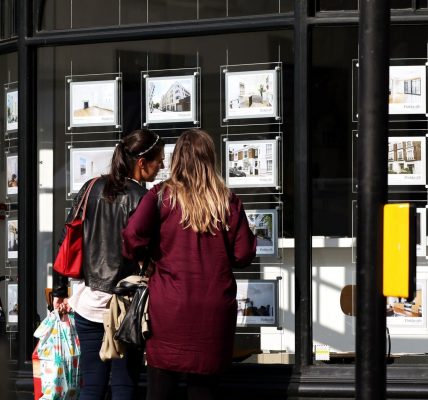How Leeds poet Suhaiymah Manzoor-Khan became a top political voice and Breaking Binaries podcaster
How Leeds poet Suhaiymah Manzoor-Khan became a top political voice and Breaking Binaries podcaster
Suhaiymah Manzoor-Khan found her voice through poetry. Now one of the country’s most eloquent political commentators, the writer and podcaster talks to Sarah Freeman.
When Suhaiymah Manzoor-Khan had her breakthrough moment, she was barely aware it was happening.
It was back in 2017, the same week as the London Bridge terror attacks, when the Bradford-born Cambridge graduate stood on stage in the Roundhouse Poetry Slam finals and in front of 600 people delivered her response to the event, which left eight people dead and dozens injured.
“Normally you try out a new poem on a few groups of people so you have a good idea what the response is likely to be,” says the 26-year-old. “However, that night was the first time I had performed that particular poem. I was really nervous; I honestly wasn’t sure whether it would be a hit or miss.
“Halfway through people started applauding which had never happened before. I knew I’d obviously struck a chord, but I didn’t win and I went home thinking I’d had a good night but nothing more. However, two or three weeks later I started getting messages from people who had seen the footage. The poem had gone viral and suddenly I was getting invitations to appear at festivals. People thought I was an established poet, so I decided to go along with it and bluff my way through.”
With lines like, “love us when we are lazy… love us when we are poor”, This is Not a Humanising Poem was defiantly unapologetic about what it really meant to be a Muslim in 21st century Britain and in many ways has shaped Suhaiymah’s writing career to date.
“I grew up in Leeds, but then suddenly I found myself performing on the US spoken word circuit which is more overtly political than the UK scene,” says the former Roundhay School pupil.
“I’d been given a platform to perform and I decided I wasn’t going to let it go.”
Suhaiymah can trace her political awakening to her time as an undergraduate at Cambridge University, which she admits wasn’t a particularly happy period in her life. “Initially, going to Cambridge seemed like a cause for celebration, but I was completely unprepared for what it was going to be like. I’d gone to a school where there were loads of people who looked like me and I’d lived in a multicultural community. I guess I had an over-romanticised view of what the world was like.
“Cambridge was incredibly elitist and I did experience racism. There were times when I was very lonely and it was then that I first thought that I needed to write down what I was experiencing.”
What started as a few blog posts on social media culminated with the publication of A Fly Girl’s Guide to University, which Suhaiymah wrote with four of her contemporaries. “The book was really our way of saying that our experiences mattered and that we had something to say which was worth hearing. That and the poetry came along at the same time and there was something really liberating about standing on a stage knowing for the next three minutes everyone in the room had to listen to you.”
Suhaiymah’s first poetry collection, Postcolonial Banter, followed in 2019 and having been an outspoken voice on everything from the attempt to ban the burkini in France to political Islamophobia in the UK, she has quite relished the last year of enforced isolation. “I have missed being in a room with people sharing ideas and I do fear when I eventually get back on stage I will have forgotten what to do, but it’s also been a chance for me to explore different projects.”
While best known for her poetry, Suhaiymah has been working on plays with both London’s Royal Court Theatre and Freedom Studios in Bradford, she has written a non-fiction book due out next year and has also contributed to the Cut From the Same Cloth anthology published later this month.
“Fifteen women from different backgrounds have written pieces for the anthology and like a lot of the work I do it’s about questioning why stereotypes exist and who benefits from them. As a Muslim woman, you tend to be cast in one of two categories; you’re either Shamima Begum or a top athlete and pillar of the community. We tend to be painted as extremes, but the truth is most of our lives are very mundane, boring even.”
It’s those same themes that Suhaiymah explores in her Breaking Binaries podcast. In each episode a different guest is invited to discuss two apparently opposing ideas such as guilt and innocence or the secular and the religious.
“Like so much of what I have done, the podcast was a bit of a happy accident,” says Suhaiymah, who still lives in Leeds. “Someone asked me on Instagram whether I had thought about podcasting. Initially it felt a bit self-indulgent, but I know lots of people who have helped me think about things in different ways and I thought it would be interesting to share their thoughts.
“Today there is a real tendency to use race as an easy explanation for any issue, but the root causes of so many social problems are far more complex. Toni Morrison said ‘the function of racism is distraction’ and she was absolutely right. When people explain poverty as a problem caused by race, it actually prevents us from looking at the root causes of racial disparities, not race itself.”
Never afraid to shy away from difficult issues, two years ago Suhaiymah, along with six other artists, pulled out of the Bradford Literature Festival after it emerged the event had received funding from the Government’s counter-extremism programme Building a Stronger Britain Together. She objected to the underlying philosophy of the initiative, which she maintains views all Muslims as potential criminals who require monitoring and surveillance.
“Behind the scenes I had a friendly conversation with the organisers and explained that, while I admired what they had done with the festival, I didn’t want to be part of something which made Bradford seen as a problem place,” she says.
“Initially I was really glad of the publicity. I felt it was drawing attention to something important, but then something strange happened. Myself and the other writers suddenly became the ones who were portrayed as being extremist and it was a real lesson in how events can be completely misconstrued.”
Despite stepping aside from the festival, Suhaiymah believes that the arts are key to healing divisions. “Without arts and culture what are you left with apart from the utilitarian parts of life?We are just all trying to get by, but art provides a space to imagine what a good world looks like. A healthy society needs a good dose of creativity because without it, we are nothing.”
Cut from the Same Cloth, published by Unbound, is due out on Thursday.










